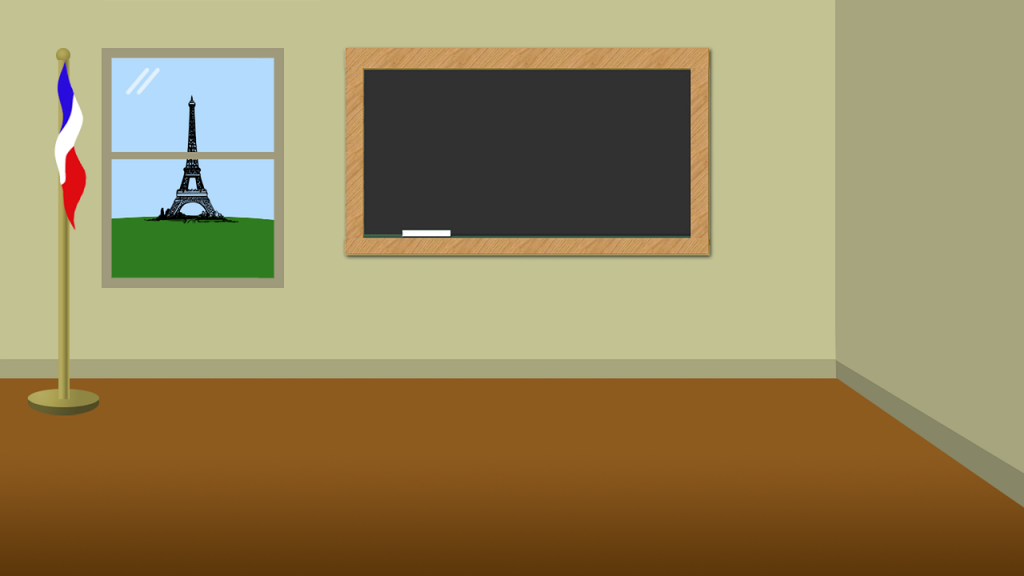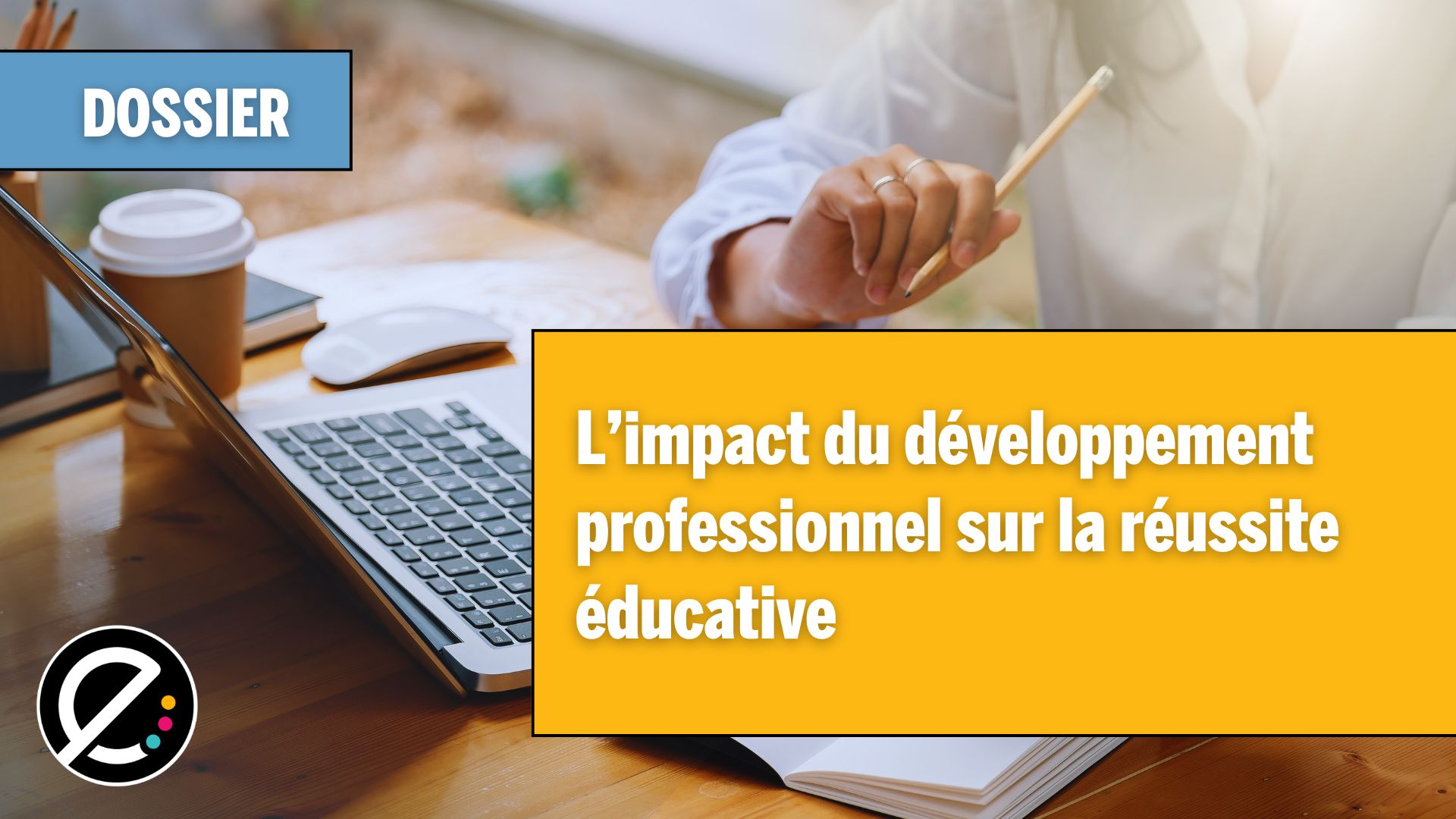Aujourd’hui, les acteurs du monde de l’éducation sont amenés à collaborer au-delà des frontières, voire même à pratiquer dans d’autres pays! Notre collaborateur Marc-André Girard vous propose, suite à son récent séjour en France, des clarifications quant au cheminement qui mènent au métier d’enseignant en France ainsi qu’aux différentes perspectives de progression professionnelle.
Selon les statistiques officielles du ministère de l’Éducation nationale, à la rentrée scolaire 2015, ils étaient 861 000 à enseigner au premier et second degré, dans les écoles françaises. Notons que le premier degré correspond au préscolaire et primaire alors que le second degré, lui, correspond au collège et au lycée. Ces derniers, répartis dans près de 64 000 écoles, s’affairaient à enseigner aux presque 12.4 millions d’élèves.
Le système français rappellera l’organisation scolaire québécoise : il y a un réseau public dans lequel une forte majorité d’élèves étudient, mais il y a des écoles privées sous contrat, l’équivalent des écoles privées québécoises, où les parents paient une partie des frais de scolarité et où l’État paie l’autre partie. Enfin, il y a un réseau privé à 100%, où l’entièreté des frais de scolarité est absorbée par les parents.
Cela dit, comment devenir un enseignant en France?
Dans un premier temps, il est important de noter que ces derniers doivent suivre une formation de base au premier cycle, appelée licence (l’équivalent d’un baccalauréat de trois ans au Québec). En effet, les futurs maitres doivent réussir un programme universitaire de premier cycle dans n’importe quel champ disciplinaire. Par la suite, ils ont deux possibilités :
- Être admis au « master » (à la maitrise) spécialisée dans les métiers de l’enseignement, de l’éducation et de la formation à l’École supérieure du professorat et de l’éducation (ESPE). La première année en est une de cours de pédagogie et de didactique alors que la seconde, en est une de stages combinés avec des cours;
- Réussir un autre programme au « master ». Par la suite, si l’enseignant réussit un concours d’embauche, il devient « professeur stagiaire », ce qui implique qu’il devra essentiellement faire une alternance de stages et de cours, toujours à l’ESPE, et ce, pendant une année.
Dans les deux cas, les « professeurs stagiaires » sont rémunérés au plus bas de l’échelle salariale. Une fois leur scolarisation de maitrise terminée, les enseignants devront se soumettre à une autre évaluation (titularisation) pour confirmer leur statut d’emploi.
Enseigner au premier degré (préscolaire et primaire)
Depuis quelques années, ceux qu’on appelait les « professeurs des écoles » acquièrent automatiquement, avec leur embauche, leur Certificat d’aptitude au professorat des écoles (CAPE).
Pour ceux qui veulent poursuivre leur parcours professionnel, ils peuvent devenir formateurs en passant le certificat d’aptitude aux fonctions d’instituteur ou de professeur des écoles maître formateur (CAFIPEMF). Ils deviennent donc des formateurs d’enseignants et cela leur confère, en outre, la possibilité de faire des interventions à l’ESPE et accueillir des stagiaires en enseignement.
Toujours selon une logique de progression professionnelle, il y a également la possibilité de devenir conseiller pédagogique à l’échelle d’une circonscription ou au niveau départemental. Ces derniers travaillent avec un inspecteur de l’Education Nationale (IEN) et n’ont plus de charge d’enseignement en classe pour pouvoir travailler avec des enseignants en les soutenant pédagogiquement.
Au second degré (collège et lycée (secondaire))
Une fois admis à la maitrise, après une première année combinant formation en pédagogie et stages en milieu scolaire, ces derniers, s’ils réussissent le concours national du Certificat d’Aptitude au Professorat de l’Enseignement du Second degré (CAPES), seront attachés à une Académie, l’équivalent d’une commission scolaire. En effet, il existe un CAPES pour chaque discipline scolaire (arts, sciences, langues, etc.) et chaque concours est divisé en quatre examens : deux écrits et deux oraux. Ceux-ci sont comparables à des entrevues sous panel d’évaluateurs menées par l’Académie. Pour l’année qui suit, ils seront nommés « professeurs stagiaires », comme c’est aussi le cas au premier degré. Enfin, ces derniers peuvent enseigner au Collège ou au Lycée.
Ceux que l’on surnomme les « capéssiens » se voient offrir une autre possibilité d’avancement de carrière : ils peuvent devenir des professeurs agrégés. Ils doivent donc réussir un autre concours, celui d’agrégation. Il s’agit d’un concours public, où les noms des candidats sont affichés sur le site de l’Éducation nationale. Un fois le concours réussi, l’enseignant aura deux années de stage avant d’être reconnu comme étant officiellement agrégé.
En plus de l’exercice de tâches leur étant réservée, comme par exemple l’orientation scolaire et professionnelle des élèves, l’agrégation permet à l’enseignant concerné d’accéder à un titre honorifique, une légère réduction de ses heures de présence en classe, ainsi qu’une augmentation salariale.
Les professeurs agrégés sont principalement à l’œuvre dans les lycées français.
Les chefs d’établissement
Ce sont les directeurs d’école qui accèdent à ce poste en passant un autre concours. Une fois nommés à ce poste, ils sont attribués essentiellement à la gestion organisationnelle de leur établissement scolaire : grilles horaires et matières, obligations administratives, planification de l’entretien des bâtiments, etc. Ils exercent également des tâches en lien avec la supervision pédagogique, et ce, en soutien à l’inspecteur de l’Académie. Ils ont donc un ascendant hiérarchique partiel sur les enseignants.
L’inspecteur de l’Éducation nationale
Les IEN ont une double responsabilité : d’une part ils sont dans la ligne hiérarchique et représentent par délégation l’institution, le directeur Académique ou le Recteur et, d’autre part, ils sont comme des chefs d’établissement de toutes les écoles sur leur territoire que l’on appelle la circonscription.
Essentiellement, leur tâche consiste à mettre en œuvre la déclinaison départementale de la politique éducative nationale dans les écoles de leur circonscription. Ce sont les responsables hiérarchiques des enseignants : pour moyenne, les inspecteurs de l’éducation nationale ont à responsabilité 300 enseignants et 5000 élèves répartis dans une trentaine d’écoles selon le contexte territoriale. Ils rendent compte de leurs actions à la direction des services académiques de l’Éducation nationale notamment à l’Inspecteur d’académie directeur académique.
Les inspecteurs organisent les journées pédagogiques et les activités de formation continue, et ce, avec l’aide de conseillers pédagogiques. Ils assurent aussi le pilotage de leur circonscription, ils évaluent par des inspections individuelles ou des évaluations collectives les enseignants et les unités d’enseignement. Ils accompagnent les enseignants dans leur développement professionnel et élaborent le plan de formation pour l’ensemble des enseignants en suivant les orientations ministérielles déclinées dans la circulaire de rentrée. Ils sont aussi des gestionnaires et assurent un rôle de gestion de ressources humaines. Ils sont entourés de collaborateurs directs comme les conseillers pédagogiques et s’appuient aussi sur le pilotage pédagogique des directeurs d’écoles qu’ils supervisent afin d’impulser le changement. Finalement, ils sont des communicants et ont des relations collaboratives avec les différents partenaires de l’école comme les municipalités, les parents, les associations, etc.
Cet article fait partie d’une série publiée par notre auteur et collaborateur Marc-André Girard, dans le cadre de sa participation au Laboratoire d’innovation et du numérique en éducation (LINE) à l’Université de Nice Sophia Antipolis.
Vous pouvez lire l’ensemble des articles de cette série ici.






